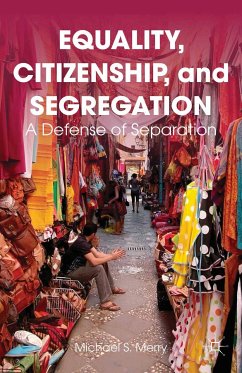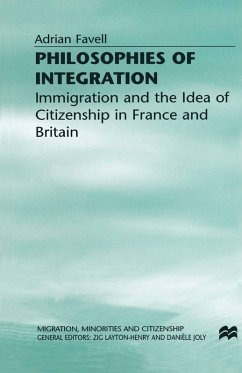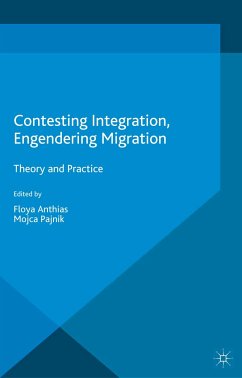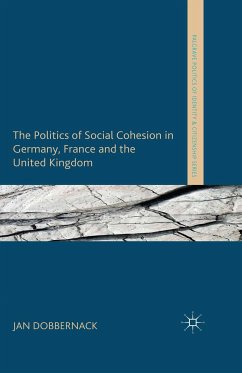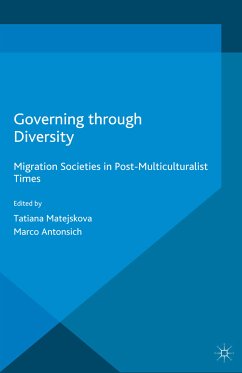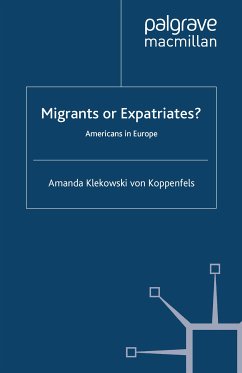Dieser Download kann aus rechtlichen Gründen nur mit Rechnungsadresse in A, B, BG, CY, CZ, D, DK, EW, E, FIN, F, GR, HR, H, IRL, I, LT, L, LR, M, NL, PL, P, R, S, SLO, SK ausgeliefert werden.
"Many people believe that integration is an attractive societal goal in racially, ethnically, and culturally diverse democratic societies. Merry's Equality, Citizenship, and Segregation shakes our faith in this view by arguing that voluntary separation is a better way to foster civic virtue and to secure self-respect for stigmatized minorities. The provocative upshot is that achieving better democracies requires paying more attention to the social attachments that divide us rather than to what we share in common. Merry's argument acknowledges the negative effects that often coincide with segregation, such as crime, diminished social capital, low school quality, and high unemployment, but questions whether greater integration is necessary to overcome them. This volume is a must-read for political philosophers,political theorists, law and policy makers, and indeed everyone who is concerned with the future of democracy and how it can flourish in increasingly diverse societies with open borders where substantive equality remains an aspiration, rather than a reality, for the most vulnerable minorities." - Derrick Darby, Professor of Philosophy, University of Michigan, USA, and author of Rights, Race, and Recognition (2009).
"In this insightful and eloquent book, Merry outlines the conditions under which 'voluntary segregation' can afford equality, citizenship and opportunity to minority and stigmatised groups. No apologist for segregation nor dogmatically opposed to policies of integration, Merry is nonetheless alert to the limits of wishful thinking and of unintentionally denigrating those who act to reclaim and transform their own segregated experiences. It is a book that deserves to be carefully read and widely debated." - Richard Harris, School of Geographical Sciences and Centrefor Market and Public Organisation, University of Bristol, UK

